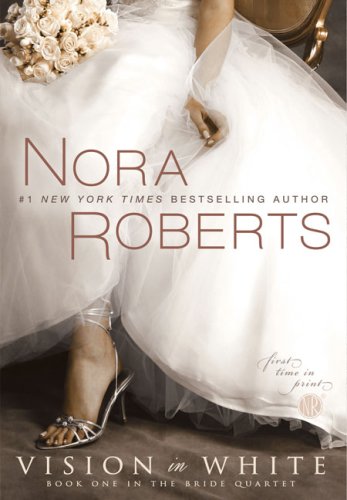
Today I'm going to talk a little bit about promises. Not promises between couples, or parent and child, but the promise between a writer and a reader. Every story makes a promise to the reader. I argue that it's a two-part promise: emotional and intellectual. We are drawn to books that promise what we are looking for. I pick up a light, fun story when I don't want to think too hard and just want to escape. When I want to better myself, I pick up a self-help book. And when I want to be a little scared I'll pick up something a little darker.
For published books the promise begins before the first word. It's in the title, the cover, and the back cover or jacket copy. Look at these book covers, for example.


 I'm going out on a limb here, but I think this is paranormal, and probably with a humorous twist.
I'm going out on a limb here, but I think this is paranormal, and probably with a humorous twist.You can see how the titles and covers give a promise. It's the marketing department's job to take care of the cover/blurb promise. Once you brand your name and/or series, then that gives your readers a promise, too. That's why it's not a good idea to try and genre hop too much. (At least at first, then you become Nora Roberts and can do whatever in the world you feel like.)
As a writer, you give the readers a promise. The first word, the first paragraph, the first page, and the first chapter all give that promise. In a non-fiction book you better make sure your promise is stated clearly by the end of the first chapter. In fiction it's not spelled out as clearly, but there is still a promise.
I try hard in my writing to live up to the promise set down in the first chapter. And if the book veers off on its own course, I want to make sure and go back to the beginning and tweak my promise. Because readers expect you to keep your promise. And they will put the book down in disgust if you don't.
Or, if they're like me, they will throw the book across the room. *To the library: I apologize profusely. But it's not my fault!
So why am I talking about the writer/reader promise? Because I'm very angry at Dean Koontz.
 I used to read quite a bit of Dean Koontz, and he has written some truly creepy stories. But it's been a while, and I wanted to renew our relationship so I picked up this book. The back cover copy sounded pretty good, in a creepy Koontz way. Something about a dead woman stalking the man who got her heart in a transplant. And the almost freaky eyes of the woman on the cover boded well.
I used to read quite a bit of Dean Koontz, and he has written some truly creepy stories. But it's been a while, and I wanted to renew our relationship so I picked up this book. The back cover copy sounded pretty good, in a creepy Koontz way. Something about a dead woman stalking the man who got her heart in a transplant. And the almost freaky eyes of the woman on the cover boded well.Unfortunately, Dean broke his promise in a big way. I gave you 100 pages Mr. Koontz --100 pages!!-- and it is boring, boring, B-O-R-I-N-G. I get it your main character has lots of disturbing dreams. After the second dream I got it. No need to beat a very dead horse. And I know the whole "heart" concept is a theme throughout the book, but if I had to read any more heart metaphors I just might wish my own to stop beating. I was a third through the book and the character hadn't even been put on the heart transplant list yet, for crying out loud.
I refuse to read anymore. I might pick up Koontz's next book in case this was a mid-life crisis mistake or something. Maybe
Note to writers: Do. Not. Do. This. (Please, for all that's good in the world of writing!)
Especially if you're not as big as Dean Koontz; readers will give you less of a chance. So figure out your promise and keep it!


















3 comments:
Great blog! I have to go pick up this book now to see what you are talking about.
I totally agree with you. The cover invites the reader in and the story must meet the reader's expectations or else the book is tossed.
I just read what was billed on the cover and the inside cover as a romance. Yet in the end, I had no idea what kind of book I had just read. The two main characters have the opportunity to get together at the end and DON'T. I was so mad I almost threw the book out the window.
I totally agree. As a writer, you owe the reader something, and should follow though on it.
Post a Comment